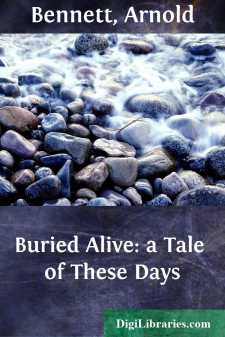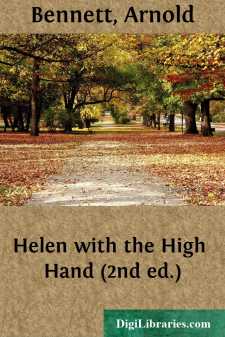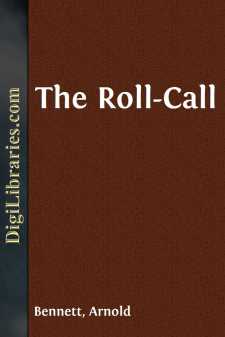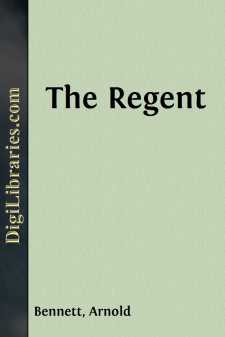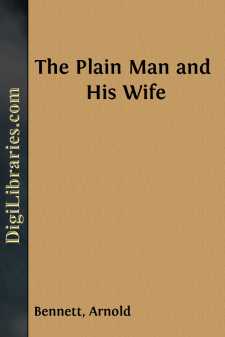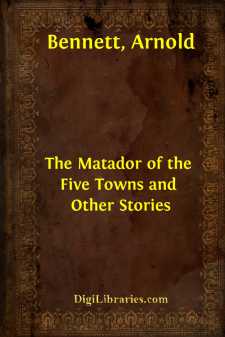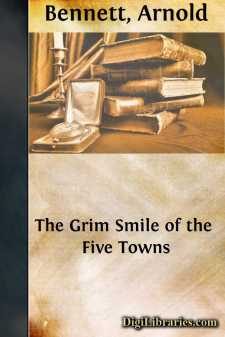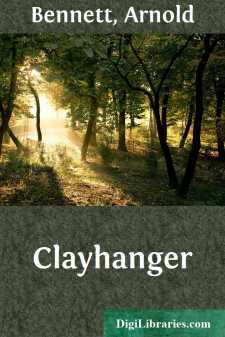Categories
- Antiques & Collectibles 13
- Architecture 36
- Art 48
- Bibles 22
- Biography & Autobiography 813
- Body, Mind & Spirit 142
- Business & Economics 28
- Children's Books 17
- Children's Fiction 14
- Computers 4
- Cooking 94
- Crafts & Hobbies 4
- Drama 346
- Education 46
- Family & Relationships 57
- Fiction 11829
- Games 19
- Gardening 17
- Health & Fitness 34
- History 1377
- House & Home 1
- Humor 147
- Juvenile Fiction 1873
- Juvenile Nonfiction 202
- Language Arts & Disciplines 88
- Law 16
- Literary Collections 686
- Literary Criticism 179
- Mathematics 13
- Medical 41
- Music 40
- Nature 179
- Non-Classifiable 1768
- Performing Arts 7
- Periodicals 1453
- Philosophy 64
- Photography 2
- Poetry 896
- Political Science 203
- Psychology 42
- Reference 154
- Religion 513
- Science 126
- Self-Help 84
- Social Science 81
- Sports & Recreation 34
- Study Aids 3
- Technology & Engineering 59
- Transportation 23
- Travel 463
- True Crime 29
Sort by:
by:
Arnold Bennett
ACT I SCENE I Front room on ground floor at 126 Redcliffe Gardens. An apartment furnished richly but in an old-fashioned way. Fine pictures. Large furniture. Sofa near centre. General air of neglect and dustiness. Carpet half-laid. Trunks and bags lying about in corners, some opened. Men's wearing apparel exposed. Mantelpiece, R., in disorder. At back double doors (ajar) leading to another room....
more...
by:
Arnold Bennett
CHAPTER I The Puce Dressing-gown The peculiar angle of the earth's axis to the plane of the ecliptic--that angle which is chiefly responsible for our geography and therefore for our history--had caused the phenomenon known in London as summer. The whizzing globe happened to have turned its most civilized face away from the sun, thus producing night in Selwood Terrace, South Kensington. In No. 91...
more...
by:
Arnold Bennett
CHAPTER I BEGINNING OF THE IDYLL In the Five Towns human nature is reported to be so hard that you can break stones on it. Yet sometimes it softens, and then we have one of our rare idylls of which we are very proud, while pretending not to be. The soft and delicate South would possibly not esteem highly our idylls, as such. Nevertheless they are our idylls, idyllic for us, and reminding us, by certain...
more...
by:
Arnold Bennett
CHAPTER I I In the pupils' room of the offices of Lucas & Enwright, architects, Russell Square, Bloomsbury, George Edwin Cannon, an articled pupil, leaned over a large drawing-board and looked up at Mr. Enwright, the head of the firm, who with cigarette and stick was on his way out after what he called a good day's work. It was past six o'clock on an evening in early July 1901. To...
more...
by:
Arnold Bennett
CHAPTER I DOG-BITE I "And yet," Edward Henry Machin reflected as at six minutes to six he approached his own dwelling at the top of Bleakridge, "and yet—I don't feel so jolly after all!" The first two words of this disturbing meditation had reference to the fact that, by telephoning twice to his stockbrokers at Manchester, he had just made the sum of three hundred and forty-one...
more...
by:
Arnold Bennett
ACT I Hildegarde is sitting at a desk, writing . John, in a lounging attitude, is reading a newspaper . Enter Tranto, back . TRANTO. Good evening. HILDEGARDE ( turning slightly in her seat and giving him her left hand, the right still holding a pen ). Good evening. Excuse me one moment. TRANTO. All right about my dining here to-night? (Hildegarde nods .) Larder equal to the strain? HILDEGARDE....
more...
by:
Arnold Bennett
I - ALL MEANS AND NO END I The plain man on a plain day wakes up, slowly or quickly according to his temperament, and greets the day in a mental posture which might be thus expressed in words: "Oh, Lord! Another day! What a grind!" If you ask me whom I mean by the plain man, my reply is that I mean almost every man. I mean you. I certainly mean me. I mean the rich and the poor, the successful...
more...
by:
Arnold Bennett
I Mrs Brindeley looked across the lunch-table at her husband with glinting, eager eyes, which showed that there was something unusual in the brain behind them. "Bob," she said, factitiously calm. "You don't know what I've just remembered!" "Well?" said he. "It's only grandma's birthday to-day!" My friend Robert Brindley, the architect, struck the...
more...
by:
Arnold Bennett
THE LION'S SHARE I In the Five Towns the following history is related by those who know it as something side-splittingly funny—as one of the best jokes that ever occurred in a district devoted to jokes. And I, too, have hitherto regarded it as such. But upon my soul, now that I come to write it down, it strikes me as being, after all, a pretty grim tragedy. However, you shall judge, and laugh or...
more...
by:
Arnold Bennett
The Last of a Schoolboy. Edwin Clayhanger stood on the steep-sloping, red-bricked canal bridge, in the valley between Bursley and its suburb Hillport. In that neighbourhood the Knype and Mersey canal formed the western boundary of the industrialism of the Five Towns. To the east rose pitheads, chimneys, and kilns, tier above tier, dim in their own mists. To the west, Hillport Fields, grimed but...
more...



